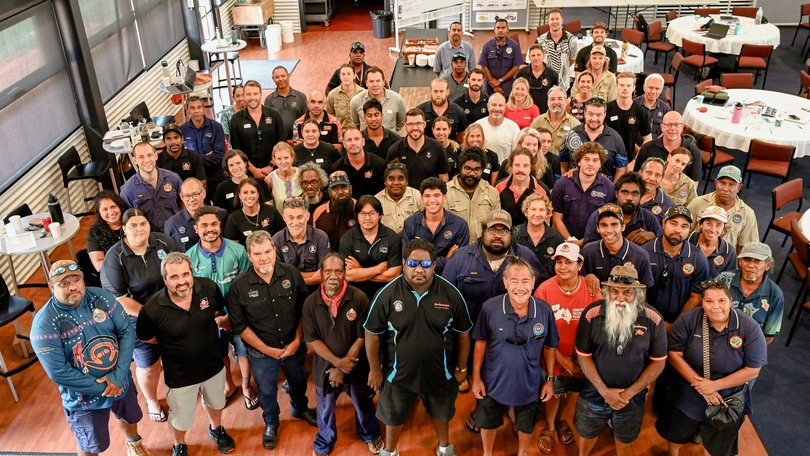
ISWAG 2025 forum-
URGENT UPDATE: Over 60 Indigenous rangers and Traditional Owner representatives convened last week in Broome, Australia, to redefine their priorities for managing the northern sea country. This pivotal gathering, co-hosted by the Kimberley Land Council and Nyamba Buru Yawuru, marks the largest annual forum for the Indigenous Saltwater Advisory Group (ISWAG) to date, reflecting a united front in addressing critical environmental challenges.
The forum, held on [insert date], was fueled by funding from Australian Marine Parks and the Department of Primary Industries and Regional Development. ISWAG, established in 2014, aims to amplify Indigenous voices in marine research, policy, and management. Co-chair Dean Matthews emphasized the importance of this platform, stating, “The forum facilitates discussions on collaborative regional projects and opportunities for a collective voice to influence authority for sea country.”
Participants tackled urgent issues, such as the impact of Western Australia’s marine heatwave on coral reefs and seagrass, the rise of illegal fishing, and the protection of culturally significant species like dugongs and green turtles. These discussions are vital as the Kimberley coastline faces increasing pressures from tourism and industrial activities.
The outcomes from this landmark forum include commitments to a Kimberley-wide dugong monitoring program and enhanced governance for ISWAG. According to Daniel Oades, sea unit manager at the Kimberley Land Council, “Indigenous rangers are on the front line protecting the Kimberley coast every day.” He highlighted that traditional owners have the power to influence national policy and shape environmental management practices across the country.
Oades further stated, “This forum is about working together as one region, sharing knowledge and ensuring Indigenous voices guide how the coast is managed. We’re not just responding to change; we’re leading it, ensuring our sea country is healthy for generations to come.”
As the ISWAG network expands across the Kimberley coastline, it combines traditional knowledge with scientific research to guide decisions affecting coastal communities. The urgent need for Indigenous representation in fisheries policy and management was underscored, as members discussed strategies to enhance involvement and address the increasing tourism pressures.
The collective resolve demonstrated at this forum signals a new era in managing Australia’s northern sea country, emphasizing Indigenous leadership and collaboration in tackling climate change and ecological preservation.
Stay tuned for further updates as ISWAG implements these critical initiatives to protect and manage the sea country effectively.






